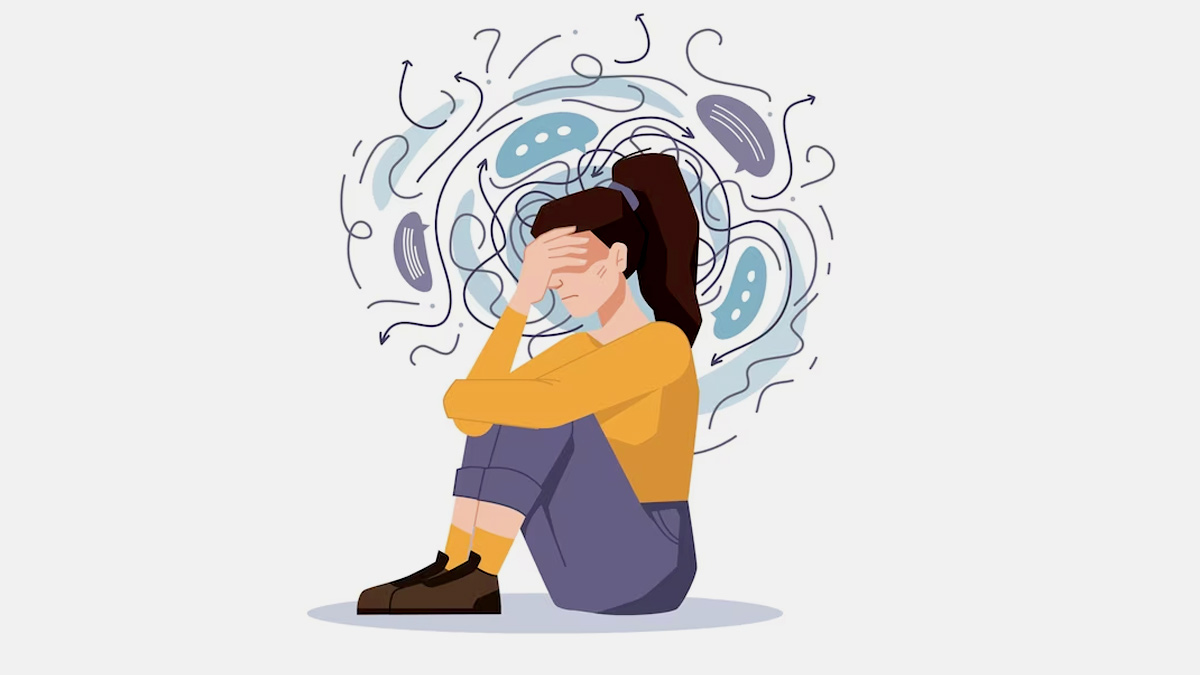
Psychiatric illness has long been a taboo and stigmatised topic in India, with individuals facing social exclusion and discrimination due to their mental health conditions. This stigma is deeply rooted in cultural, religious, and societal beliefs, and it has significant implications for individuals seeking treatment and support. To know more about it, we spoke to Dr Shradha Malik, Founder - Athena Behavioral Health.
Table of Content:-
Understanding Psychiatric Illness
Psychiatric illnesses encompass a wide range of conditions, including depression, anxiety disorders, bipolar disorder, schizophrenia, and more. They affect individuals' thoughts, emotions, behaviours, and overall quality of life. However, due to the prevailing societal norms, psychiatric illnesses are often misunderstood, misattributed, or dismissed as mere "madness" or a result of personal weakness.
Psychiatric Illness - Why A Taboo?
According to Dr Malik, "In India, mental health is often viewed through a lens of superstition, misunderstanding, and ignorance. Many people believe that psychiatric illnesses are a result of personal weakness, bad karma, or even possession by evil spirits."

She said that these misconceptions contribute to the stigmatisation of individuals suffering from mental health conditions. "Moreover, mental health problems are often regarded as a family matter that should be kept hidden from the public eye, further perpetuating the stigma," she added.
The societal stigma surrounding mental health in India has significant consequences for individuals seeking treatment. A large majority of individuals with mental illness do not receive the assistance they need for their disorders, as per American Psychiatric Association.
Dr Malik said that many people hesitate to seek professional help due to the fear of being labelled as 'crazy' or 'mad.' "The stigma associated with mental illness can lead to social isolation, loss of employment opportunities, and strained relationships with family and friends. This, in turn, exacerbates the suffering of individuals already dealing with mental health challenges," she explained.
What Can We Do About It?
Promote Awareness and Education
Introducing mental health education in schools, colleges, and workplaces is crucial. Educating the public about psychiatric illnesses, their causes, symptoms, and available treatments can help dispel myths and reduce stigma.
Engage in Open Conversations
Encouraging open conversations about mental health at home, workplaces, and community gatherings can create safe spaces for individuals to share their experiences and seek support. Public figures, celebrities, and influential voices should use their platforms to advocate for mental health and challenge societal norms.
Strengthen Mental Health Services

"Despite these challenges, there is a growing recognition of the importance of mental health in India, and many organisations are working tirelessly to address the stigma and provide much-needed treatment and support," said Dr Malik.
Increasing accessibility to mental health services, including affordable therapy, counselling, and psychiatric treatment, is vital. The government, NGOs, and private organisations should collaborate to establish more mental health centres and helplines, particularly in rural areas.
"Moreover, in treatment facilities we should prioritise patient confidentiality and privacy, creating a safe and non-judgmental environment for individuals seeking help," said Malik. She said that by providing evidence-based treatment and fostering a compassionate atmosphere, such facilities play a crucial role in breaking down the barriers of stigma and encouraging individuals to seek the help they need.
Addressing Policy and Legal Frameworks
Implementation and enforcement of policies that protect the rights of individuals with psychiatric illnesses are crucial. This includes strict laws against discrimination, the provision of equal employment opportunities, and healthcare coverage for mental health treatments.
Conclusion
Breaking the taboo surrounding psychiatric illnesses in India is a critical step towards fostering a mentally healthy society. By challenging cultural beliefs, raising awareness, and providing accessible mental health services, we can create an environment that encourages open conversations, support, and understanding. It is high time that we recognise the importance of mental well-being and strive to eliminate the stigma associated with psychiatric illnesses, ensuring a brighter, and more inclusive future for all.
[Disclaimer: This article is for informational purposes only. Consult your healthcare provider to get a thorough diagnosis and treatment as per your health needs.]
Image Credits: freepik
Also watch this video
How we keep this article up to date:
We work with experts and keep a close eye on the latest in health and wellness. Whenever there is a new research or helpful information, we update our articles with accurate and useful advice.
Current Version